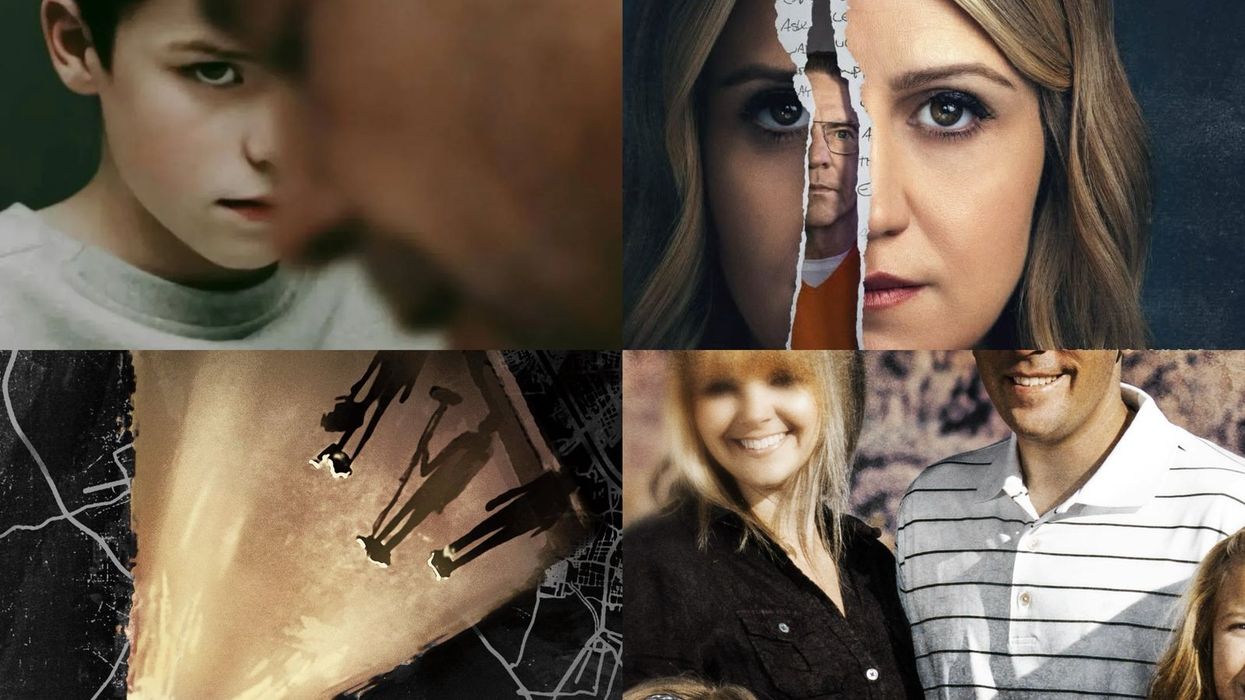They don’t wear prison uniforms. They haven’t committed the crime. And yet, they live with the sentence. The whispers, the suspicion, the unbearable question: Did you know? Could you have stopped it?
For decades, true crime has obsessed over killers—their twisted minds, their methods, their victims. But now, a new wave of storytelling is forcing us to look beyond the perpetrators. What about the people they left behind? The mothers who raised them, the children who bear their names, the siblings who once shared bedtime secrets. Netflix’s Adolescence, Paramount+’s Happy Face, and a string of recent documentaries expose the unseen collateral damage of crime: the families of murderers who are left to pick up the pieces.

This isn’t just about crime. It’s about guilt, grief, and the unbearable weight of blood ties.
Adolescence: When a killer is your own child
Imagine tucking your child into bed one night, only to wake up and find their face on the news, not as a victim, but as the monster.
Netflix’s Adolescence is a gut-wrenching portrayal of parental horror. It follows Eddie and Manda Miller as they grapple with the unthinkable: their 13-year-old son, Jamie, has murdered his classmate. The show drags its audience into the Millers’ suffocating reality, social ostracisation, self-recrimination, and the sheer impossibility of reconciling their love for their son with the horror of his actions.
- YouTubeyoutu.be
Stephen Graham’s portrayal of Eddie is haunting. In one of the show’s most chilling moments, he watches home videos of Jamie as a toddler, whispering, “Where did my boy go?”
But Adolescence isn’t just fiction, in fact it mirrors real-life crises. A 2024 NSPCC report found a 58% rise in violent youth offences linked to online radicalisation. Meanwhile, 72% of parents of young offenders experience suicidal thoughts (The British Journal of Criminology).
The series forces us to confront a terrifying question: What if it were my child?
Happy Face: The daughter of a serial killer
For most, a father is a protector. For Melissa Moore, he was a predator.
Happy Face (Paramount+, 2025) is an excruciating journey through inherited trauma. Melissa was 15 when she learnt her father, Keith Jesperson, was the “Happy Face Killer.” Her childhood memories became crime scene evidence.
- YouTubeyoutu.be
Annaleigh Ashford delivers a searing performance as Melissa, capturing the agony of a daughter caught in the web of a man she once adored. In one scene, she holds an old photograph of herself on her father’s shoulders and whispers, “That’s not my dad. That’s the man who played him.”
The statistics paint an ugly reality: 89% of perpetrators’ families suffer from PTSD (Journal of Forensic Psychology). One in three lose jobs or homes due to stigma.
Reality: This is not a story of redemption. It’s survival.
Monster in my Family: When love becomes horror
The investigative series Monster in My Family takes viewers behind closed doors, offering first-hand accounts from relatives of notorious criminals. Each episode gives voice to those trapped in the wreckage, struggling to reconcile their love with the truth.
- YouTubeyoutu.be
The show highlights a brutal reality: These families don’t just grieve privately. They are judged, harassed, and in some cases, driven into hiding. The crimes may not be theirs, but the punishment often is.
The Alcàsser Murders & burden of proof: When the world turns on you
Not all suffering comes from the crime itself. Sometimes, it’s society that delivers the final blow.
- YouTubeyoutu.be
Spain’s The Alcàsser Murders (2019) and HBO’s Burden of Proof (2023) expose the brutal truth: when someone you love is accused of a crime, the world turns against you. Families are dissected by the media, harassed by strangers, and, in some cases, forced into hiding.
- A 2022 BBC report found that 64% of families of violent criminals face harassment or death threats.
- 43% relocate to escape the scrutiny (Interpol, 2021).
Grief is hard enough. But how do you grieve someone the world expects you to hate?
The ethics of true crime’s new frontier
Not everyone agrees with this shift. Critics argue that giving voice to the families of criminals risks humanising monsters. But Dr. Lorna Rhodes, a criminologist at Cambridge, disagrees: “Ignoring the families doesn’t erase their pain. It erases their humanity.”

These stories don’t justify crimes. They bring to light the wreckage left behind. They force us to look at crime’s hidden victims, the innocent relatives drowning in guilt, the parents asking themselves if they could have stopped the inevitable, the children growing up in the shadows of killers.
The unanswerable question
True crime’s new frontier doesn’t offer easy answers. It doesn’t allow us to shake our heads at a monster and move on. Instead, it demands we sit with the uncomfortable truth: What would I do if it were my father? My son?

Because the most haunting stories aren’t just about the dead or the damned. They’re about the ones who have to keep living.
The answer isn’t in the headlines. It’s in the silence after the cameras leave, in the homes where loved ones stare at family photos, wondering when the person they knew became a stranger.





